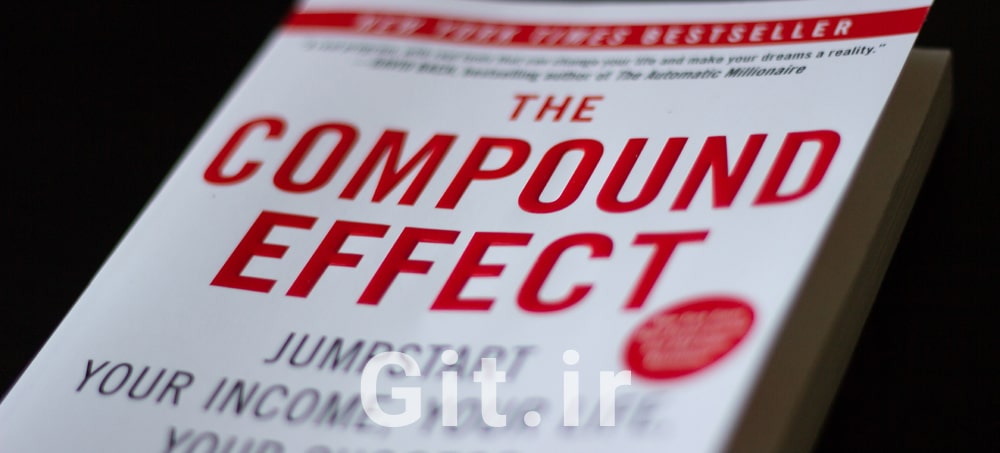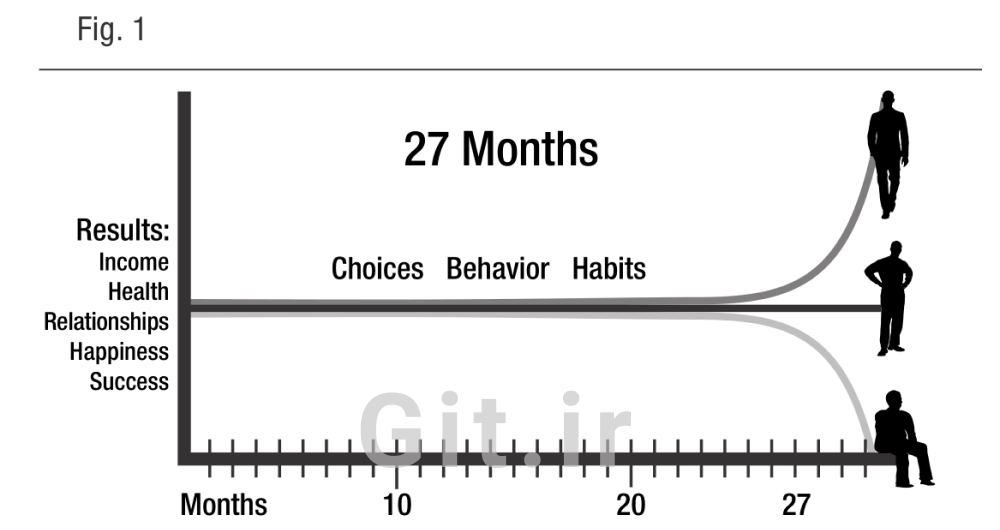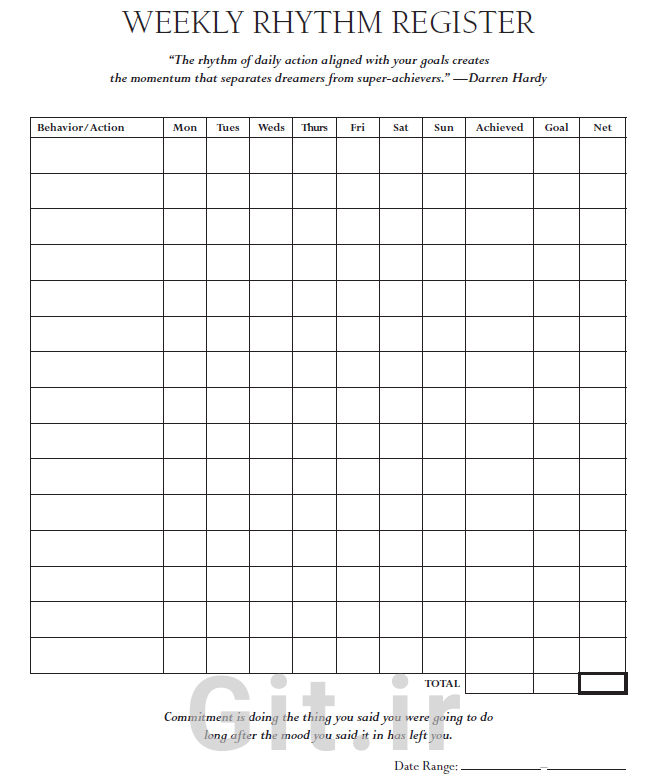summary of the compound effect by darren hardy

In The Compound Effect, Darren Hardy reveals how to use the power of small, smart choices to achieve the success and life you’ve always dreamed of.
Do you feel overwhelmed by the endless advice on how to succeed in your career or business? With The Compound Effect by Darren Hardy, you’ll discover a simple yet powerful set of principles that can help you make real progress!
In his book, The Compound Effect: Jumpstart Your Income, Your Life, Your Success, Hardy shows how you can leverage the compound effect to build a remarkable life and achieve your goals.
What is The Compound Effect?
The compound effect is a strategy that focuses on making small, intelligent decisions over time to generate significant results. It’s a straightforward principle that can multiply your success, track your progress, and help you reach your goals. To fuel your journey, consider reading other habit-building books like Atomic Habits by James Clear or The Power of Habit by Charles Duhigg—both provide roadmaps for turning these small, smart decisions into lasting habits.
🎧 Listen to the audio summary of "The Compound Effect"
Chapter 1: The Compound Effect in Action
Many people struggle to succeed because they chase instant gratification and fail to maintain consistent results. Darren Hardy understands that, given enough time, he can outperform anyone—even if he’s not the fastest, smartest, or best—by harnessing the power of the compound effect to build good habits and consistently stick to them for long-term success.
The compound effect is all about reaping huge rewards from consistently taking small, seemingly insignificant actions over a long period of time.
The smart choices you make today may seem minor, but they will help you improve your health, wealth, and relationships in the long run. Hardy sums up the compound effect with this formula:
Small, Smart Choices + Consistency + Time = Remarkable Results
One of the toughest parts of the compound effect is the need to stay consistent and patient before you start seeing the results. Hardy emphasizes that success doesn’t come from quick fixes or flashy strategies—it comes from the steady discipline of daily actions that, over time, lead to dramatic change.
Chapter 2: Choices
In this chapter of The Compound Effect, Darren Hardy emphasizes the importance of making conscious and positive choices aligned with your goals and values. He explains that the outcomes in your life are a direct result of past choices. Every choice triggers a behavior, which eventually becomes a habit over time. Poor choices—or failure to make choices—can lead to tougher decisions down the road.
Taking Responsibility and Creating Your Own Luck
Small, seemingly insignificant choices can have negative impacts. We often make decisions unconsciously, which is why it’s challenging to replace bad habits with good ones. For more insights into building good habits, refer to Atomic Habits by James Clear.
To change this, you need to take full ownership of every action, inaction, and reaction in your life. With this mindset, you can start creating your own “luck” by following this formula:
The Formula for Luck: Luck is the result of combining these key elements:
Preparation: Continuously improving your skills, knowledge, relationships, and resources to be ready for opportunities.
Attitude: Maintaining a positive and optimistic mindset that helps you see opportunities in every situation.
Opportunity: Recognizing the natural opportunities that arise, often unexpectedly, because of your preparation.
Action: Taking decisive steps when opportunities present themselves.
By taking control and full ownership of your life, you become the master of your own destiny. Many have achieved success despite significant obstacles, so there’s no reason to blame circumstances or make excuses.
Your Scorecard: The Secret Weapon
To improve or manage anything, you must first measure it. To take control of your choices, you need to track your behaviors and follow these steps:
Choose an area of your life where you want to see the most success. For example, “I will start tracking my ______ from [date/month/year].”
Track every action in this area for the next three weeks using a journal or your phone. Three weeks is an ideal time frame to form a habit.
Record all your observations and behaviors daily, no matter the circumstances.
Tracking your actions will make you immediately aware of the small things you’re doing right or wrong. Initially, focus on just one habit that will move you closer to your goals. Once you see the compound effect working, extend this tracking process to other areas of your life.

Chapter 3: Habits
In this chapter of The Compound Effect, Darren Hardy guides you on how to turn motivational choices into positive behaviors, which, with repetition over time, evolve into powerful habits. As Aristotle said, “We are what we repeatedly do.” Merriam-Webster defines a habit as:
Habit = “An acquired behavior pattern that becomes almost or completely involuntary.”
Humans are creatures of habit. Research suggests that “95% of everything we feel, think, do, and achieve is the result of a learned habit.” We are born with instincts, but with enough repetition, both good and bad behaviors become automatic habits. The most successful people consciously develop positive habits to be more productive, aware, and prepared.
Avoiding Instant Gratification
The main issue with bad habits is that they provide immediate pleasure, which often overshadows the long-term negative consequences. It’s crucial to recognize harmful habits that lead to bigger problems down the road. Breaking bad habits is challenging, and willpower alone may not be enough.
Finding the Power of Your "Why"
Instead of relying solely on willpower, tap into the power of your "why." This connects your actions and goals to your purpose, values, and aspirations. In Start with Why by Simon Sinek, your "why" provides the deeper meaning and emotional fuel necessary for taking important steps in your life and career.
“When the reason is big enough, you’ll be willing to do any ‘how.’” Your "why" should extend beyond financial, social, or material goals and connect with something internal and meaningful. You can access the power of your "why" through your core values:
Core Values = The defining principles of who you are and what you stand for.
Your core values help filter out distractions, demands, and temptations, ensuring you stay on the path to your desired destination. Defining these values also simplifies the decision-making process. When faced with a choice, ask yourself: “Does this align with my core values?” If it does, pursue it. If not, walk away without regret.
Just as people can be motivated by love and happiness, they can also be driven by hate and anger. Sometimes, enemies, negative emotions, or difficult experiences push you toward success. These adversities give you the courage to face challenges head-on.
Goals
One of Darren Hardy's mentors, Paul J. Meyer, said: “If you are not making the progress you would like and are capable of making, it is simply because your goals are not clearly defined.” The most successful individuals create a clear and compelling vision of "why" before they determine "how." Once this vision is established, they define and write down their goals to work toward it.
Goals are essential, and if you want to live a more meaningful life, you must learn how to set and achieve them effectively. First, consider all aspects of your life when setting SMART goals—career, finances, health, relationships, and more. Then, ask yourself: “What do I need to achieve these goals?” As Jim Rohn said: “If you want more, you have to become more. Success is not something you pursue... it’s something you attract by the person you become.”
Achieving your goals requires following this formula:
You → Choices (Decisions) + Behavior (Action) + Habit (Repeated Action) + Compound Effect (Time) = Goals
Breaking Bad Habits
Here are five strategies to eliminate bad habits:
Identify Triggers: List your bad habits and identify the triggers (who, what, where, and when) that lead to them.
Clear Your Environment: Remove anything from your surroundings that promotes these habits, even if your family thinks it’s unfair.
Replace: Try to swap harmful habits with less damaging or healthier alternatives, or eliminate them altogether.
Take Small Steps: Gradually move away from deeply rooted habits with small, incremental steps.
Commit to Change: Make a real commitment to change, either gradually or by tackling several bad habits at once to transform your lifestyle.
Reviewing Unpleasant Habits
Every three months, pick an unpleasant habit and refrain from it for thirty days. This will show you that you still have control over the habit. If you find it difficult to go without it for a month, it may be a bad habit you need to eliminate from your life.
Building Good Habits
Here are six techniques for creating new, beneficial habits:
Set Yourself Up for Success: Create an environment and lifestyle that supports the growth of your new behaviors.
Think Addition, Not Subtraction: Focus on adding positive actions that will enrich and replace your negative habits.
Tell Others: Share your habits with friends, family, or coworkers so they can hold you accountable.
Success Buddy: Find an accountability partner to motivate each other and work together on your habits.
Competition and Camaraderie: Organize a challenge with friends, family, or coworkers to track and compete on building a specific habit.
Celebrate: Reward yourself when you've maintained your habit for a week, a month, or three months, and enjoy the victory.
Building good habits and breaking bad ones requires patience. Research shows that forming new neural pathways for positive habits takes consistent effort over time. Habits don’t develop overnight, and there will be obstacles—just keep going. For more insights on habits, check out the books Atomic Habits or The Power of Habit.
Chapter 4: Momentum
In this chapter of The Compound Effect, Darren Hardy helps you gain momentum and rise above the average. Everything you've learned in the first three chapters comes together with this push. Let's start with Newton's First Law:
Newton's First Law (Law of Inertia): "Objects at rest tend to stay at rest unless acted upon by an external force. Objects in motion tend to stay in motion unless something slows them down."
Gaining momentum and adapting to change can be challenging. You need to begin with small steps and gradual progress. Over time, your newly formed habits will become stronger, your pace will pick up, and your results will improve. Once you gain momentum, it’s hard to stop—this is why some people achieve remarkable success.

Routines
To establish a productive flow, you can create a system in the form of a routine:
Routine = "Something you do every day without interruption."
You need to incorporate your new mindset and habits into a monthly, weekly, or daily schedule to make lasting and powerful changes. Routines help automate healthy behaviors in an efficient sequence. Following a predictable routine allows you to achieve your biggest goals. You can use a chart or planner to organize your routine effectively.
To build a successful routine, decide which healthy behaviors and habits to implement. For example, successful people have morning and evening routines that support their performance.
Rhythms
Once you establish a routine with your daily behaviors and habits, you want to experience it in a rhythm:
Rhythm = "A strong, repeated pattern of movement or sound."
This rhythm is achieved through planning, which then generates momentum. You can schedule your tasks weekly, monthly, quarterly, and annually. Once your tasks are scheduled, you no longer need to think about them—you simply follow your plan. You can also track your rhythm by recording your progress.
The Power of Consistency
Consistency is essential for success. Momentum is easily lost due to inconsistency, as it requires time and energy to repeatedly start and stop. Maintaining consistency allows you to keep progressing toward your goals.
Chapter 5: Influences
In this chapter of The Compound Effect, Darren Hardy discusses the many influences (often subconsciously) that can either help or hinder your success. While these influences are prominent and powerful, you need to manage them to work in your favor.
1. Input: Garbage In, Garbage Out
If you want to perform at a high level, you must consume nutritious, high-quality information for your body and mind. However, protecting your mind from negative information is much harder. Ask yourself:
"What are you thinking about?"
"What is influencing and directing your thoughts?"
The answer is: "Anything you allow yourself to hear and see." Your mind is like an empty cup that the world will inevitably fill with dirty water:
- Dirty Water: Negative, unproductive, and unnecessary information from sensational news, tedious comedies, dramatic politics, etc.
Instead, be mindful of what you consume and cleanse it with clear water:
- Clean Water: Positive, inspiring, and supportive information that includes personal growth, skill development, and stories of successful individuals.
2. Relationships: Who Influences You?
Research shows that the people you regularly interact with determine about 95% of your success or failure in life. Surrounding yourself with positive, successful individuals can greatly impact your journey.
3. Environment: Change Your Perspective
For success, your environment must be positive and supportive of your growth and goals. Additionally, you should declutter your surroundings—both physically and mentally—to boost your productivity. "You accept and expect to be worthy of what you have in life."
Chapter 6: Acceleration
In this chapter of The Compound Effect, Darren Hardy illustrates how to leverage everything you've learned to accelerate your results. You will also confront moments of truth and discover how to use the compound effect to break boundaries and achieve greater success.
Increasing Your Results
Real personal growth comes from how well you overcome obstacles and expectations by:
Overcoming Obstacles: Identify yourself as your toughest competitor and strive to "go beyond the norm" when faced with challenges or walls.
Surpassing Expectations: When you do "just enough" or meet the expected performance level, raise your standards and exceed what is anticipated.
Doing the Unexpected: Determine what is popular or average and take powerful, different actions because "ordinary actions yield ordinary results."
Look for extraordinary opportunities in your life to perform better and multiply your results. To achieve this, “push yourself a little further, apply a little more pressure, endure a bit longer, prepare a little better, and give a little more.”
Conclusion and Next Steps
“Learning without execution is futile. Motivation without action leads to self-deception.” In his book The Compound Effect, Darren Hardy presents it as a tool that, when combined with consistent positive actions, creates real and lasting change in your life.
Hardy poses simple yet profound questions to prompt reflection on your life five years ago:
Are you where you thought you would be five years later?
Have you developed good habits and the skills you aimed to cultivate?
Have you broken the bad habits you committed to overcoming?
Are you in the physical condition and form you desire?
Do you have fulfilling romantic relationships and a great partner?
Are you living your ideal lifestyle and reaping rewards from your income and freedom?
If the answer is no, it's time to ask yourself why. Hardy emphasizes that changing your life begins with a simple choice and putting your learning into action.
Please Log in to leave a comment.